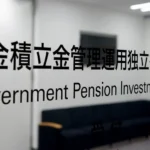- GPIF prioritizes ESG and impact investing to enhance long-term pension portfolio performance.
- Reducing sustainability-related risks is critical for long-term market stability and returns.
- Strengthening workforce and data management systems is essential for effective sustainability investing.
Japan’s Government Pension Investment Fund (GPIF) has outlined a comprehensive policy to ensure long-term, stable investment returns by prioritizing sustainability-focused investments, incorporating ESG (environmental, social, and governance) and impact considerations across its portfolio.
GPIF, as a “universal owner” and “cross-generational investor,” underscores the importance of sustainable corporate growth to maintain market stability and enhance long-term portfolio performance.
Reducing the negative impacts of environmental and social issues is essential for GPIF. According to GPIF:
“Reducing the negative impacts of sustainability-related issues on capital markets is essential for a universal owner like GPIF to pursue long-term investment returns.”
Investments that proactively address sustainability can serve as engines for sustainable corporate growth, ultimately benefiting GPIF’s entire portfolio.
RELATED ARTICLES: Danish Pension Fund AkademikerPension Wraps Up $520 Million Divestment in Fossil Fuel Stocks
Purpose of Sustainability Investment:
GPIF aims to secure long-term returns for insured individuals by managing risks and pursuing market sustainability. As outlined by GPIF:
“GPIF aims to contribute to improving the long-term performance of its entire portfolio by achieving both ‘reduction of sustainability-related risks and improvement of sustainability of markets’ and ‘the securing of market average return.’”
However, GPIF clarifies its stance, emphasizing that:
“GPIF does not make investments solely for the purpose of creating impact, which would deviate from the purpose of providing for the ‘sole benefit of insureds.’”
Principal Initiatives:
GPIF actively integrates sustainability across all asset classes using multiple approaches, including:
- ESG integration
- Engagement and exercising voting rights
- ESG-index and active fund investments
- Impact investing
- Sustainability-related risk analysis (climate change)
- Collaboration with related organizations
These methods are continually adapted and expanded.
Evaluation and Verification:
The effectiveness of sustainability investments is evaluated through long-term, multifaceted assessments including KPIs, company surveys, and causal analyses on corporate value improvements. GPIF asserts:
“Verifications should be implemented whenever needed, and we will undertake bold reviews if the effects of investment anticipated at the start of the investment period are considered to be highly unlikely to be achieved as expected going forward.“
Implementation and Governance:
Recognizing dynamic market conditions, GPIF emphasizes building robust workforce capabilities and sophisticated data management systems:
“GPIF will contribute to the stability of the pension finances through Sustainability Investment by focusing on strengthening human resources and data management system.”
GPIF commits to transparency, stating clearly:
“We will proactively disclose information targeting investee companies and other stakeholders of capital markets, not to mention insureds.”
Through these efforts, GPIF seeks to drive sustainability across capital markets, ensuring stable, long-term returns for future generations.
Read the full Sustainability Investment Policy here.
Follow ESG News on LinkedIn
The post Japan’s $1.7 Trillion Pension Fund Unveils New ESG Investment Strategy appeared first on ESG News.
